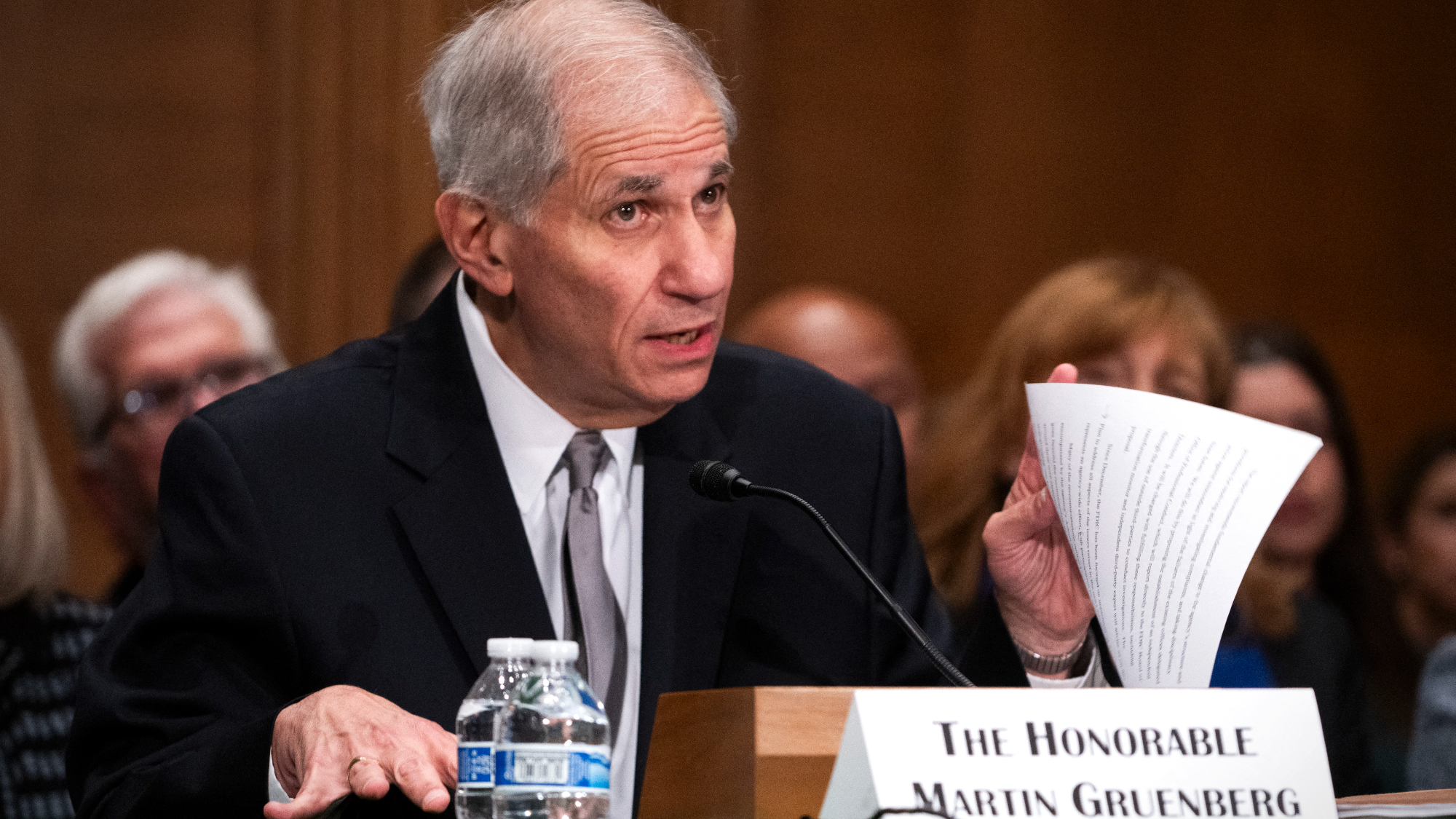FDIC chair out after toxic work culture report
The report revealed a trend of sexual harassment and discrimination at the Federal Deposit Insurance Corporation


A free daily email with the biggest news stories of the day – and the best features from TheWeek.com
You are now subscribed
Your newsletter sign-up was successful
What happened
Federal Deposit Insurance Corporation Chair Martin Gruenberg will step down as soon as his successor is confirmed, Gruenberg and the White House said Monday. Senate Banking Committee Chair Sherrod Brown (D-Ohio) had called for new leadership at the FDIC hours earlier, saying he no longer believed Gruenberg could fix the bank regulator's toxic work culture, detailed in an independent review released May 7.
Who said what
President Joe Biden "will soon put forward a new nominee for FDIC chair" who is committed to protecting consumers and the "rights and dignity of all employees," said White House Deputy Press Secretary Sam Michel.
The report on FDIC workplace problems, from the law firm Cleary Gottlieb, found a "patriarchal, insular and risk-averse culture" where employees suffered sexual harassment from supervisors and Gruenberg was seen as "someone who was angry and upset and who could not control his temper."
What next?
With Gruenberg staying on until his replacement is seated, the FDIC's five-member board will retain its Democratic majority and can push forward "a proposed overhaul to capital requirements for the country's largest banks," The New York Times said.
The Week
Escape your echo chamber. Get the facts behind the news, plus analysis from multiple perspectives.

Sign up for The Week's Free Newsletters
From our morning news briefing to a weekly Good News Newsletter, get the best of The Week delivered directly to your inbox.
From our morning news briefing to a weekly Good News Newsletter, get the best of The Week delivered directly to your inbox.
A free daily email with the biggest news stories of the day – and the best features from TheWeek.com
Peter has worked as a news and culture writer and editor at The Week since the site's launch in 2008. He covers politics, world affairs, religion and cultural currents. His journalism career began as a copy editor at a financial newswire and has included editorial positions at The New York Times Magazine, Facts on File, and Oregon State University.
-
 What are the best investments for beginners?
What are the best investments for beginners?The Explainer Stocks and ETFs and bonds, oh my
-
 What to know before filing your own taxes for the first time
What to know before filing your own taxes for the first timethe explainer Tackle this financial milestone with confidence
-
 The biggest box office flops of the 21st century
The biggest box office flops of the 21st centuryin depth Unnecessary remakes and turgid, expensive CGI-fests highlight this list of these most notorious box-office losers
-
 Lucasfilm passes ‘Star Wars’ torch to new leaders
Lucasfilm passes ‘Star Wars’ torch to new leadersSpeed Read Kathleen Kennedy is stepping down after 14 years at the company
-
 Buffett: The end of a golden era for Berkshire Hathaway
Buffett: The end of a golden era for Berkshire HathawayFeature After 60 years, the Oracle of Omaha retires
-
 Tariffs have American whiskey distillers on the rocks
Tariffs have American whiskey distillers on the rocksIn the Spotlight Jim Beam is the latest brand to feel the pain
-
 TikTok secures deal to remain in US
TikTok secures deal to remain in USSpeed Read ByteDance will form a US version of the popular video-sharing platform
-
 SiriusXM hopes a new Howard Stern deal can turn its fortunes around
SiriusXM hopes a new Howard Stern deal can turn its fortunes aroundThe Explainer The company has been steadily losing subscribers
-
 How will the Warner Bros. bidding war affect the entertainment industry?
How will the Warner Bros. bidding war affect the entertainment industry?Today’s Big Question Both Netflix and Paramount are trying to purchase the company
-
 Texas is trying to become America’s next financial hub
Texas is trying to become America’s next financial hubIn the Spotlight The Lone Star State could soon have three major stock exchanges
-
 US mints final penny after 232-year run
US mints final penny after 232-year runSpeed Read Production of the one-cent coin has ended
